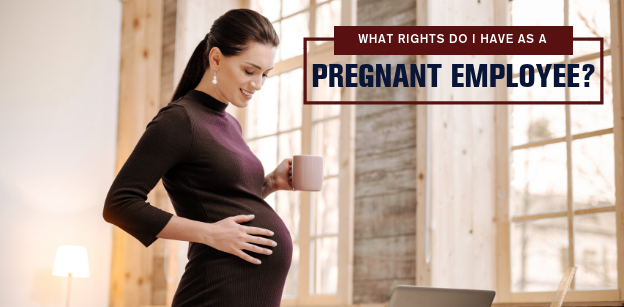During what is oftentimes one of the happiest times in a woman’s life, the workplace can be a very scary place to navigate as a pregnant employee in Texas. Most employees are unaware of what legal rights they do (and don’t) have. One question that may arise is what rights you have while employed and pregnant. Another may be what rights you have to maternity leave following the birth of your child. Under the Pregnancy Discrimination Act (which only applies to employers with 15 or more employees), a company cannot fire, refuse to hire, harass, demote, or take other adverse action against a pregnant employee if the woman’s pregnancy (or related medical condition) was a motivating factor in that decision. Although we are living in the 21st century, it is still far too common for women to be fired because of pregnancy or their need to take leave for the birth of a child or to care for their newborn. If you or someone you know is being discriminated against because of a pregnancy or birth of a child, it is imperative that you contact a pregnancy discrimination attorney as soon as possible to fully understand and protect your legal rights.
What leave am I entitled to during my pregnancy?
A pregnant employee in Texas must be afforded the same as other non-pregnant employees with respect to leave and other benefits. Likewise, an employer cannot force an employee to take leave because of her pregnancy so long as she is capable of performing her job. If a pregnant employee is not able to perform her job duties as a result of physical limitations resulting from the pregnancy, she must be allowed to take leave on the same terms and conditions as other employees who are similar in their ability or inability to work. Additionally, if a pregnant employee does have to take leave due to a pregnancy-related condition, she must be allowed to return to work to the same extent that other employees on sick or disability leave are allowed to return.
Beyond normal leave and benefits that a pregnant employee should be afforded, a pregnant employee who has an impairment related to her pregnancy may qualify for a reasonable accommodation under the Americans with Disabilities Act (ADA). For example, a company may be required to provide certain equipment for the pregnant employee to allow her to sit while performing job duties that are typically performed while standing. An employer may modify certain workplace policies or work schedules. It is also possible that a pregnant employee may be able to take leave as a reasonable accommodation beyond what the employer would normally provide under its sick leave policy. These are all very fact-specific issues, and the best thing that you can do is reach out to a pregnancy discrimination attorney in your area to discuss your legal rights.
What leave am I entitled to following the birth of my child?
The Family Medical Leave Act (FMLA) allows certain employees who have worked a year or longer for a company with 50 or more employees to take up to 12 weeks of leave for the birth and care of the employee’s newborn (or for the employee’s serious health condition if there are medical complications related to the birth). The FMLA does not require the employer to pay the employee anything for this leave, but a company’s own policy and/or certain short-term disability policies may provide for a certain amount of pay. If a pregnant employee intends to take some or all of the 12 weeks of FMLA protected leave, she must:
- Notify the employer in advance of her intention to take the leave and
- Fill out and submit any required paperwork.
At the expiration of the employee’s FMLA leave, she must be returned to the same or equivalent position.








